For years, China has attracted many travelers and explorers keen to soak up its cultural atmosphere, but it has also attracted foreign rulers who came to conquer and take advantage of its rich natural resources. Ancient China has always been an intriguing topic, so here are the top 12 most popular Chinese figures of all time.
Two of them are so popular that we decided to dedicate separate pages for them and their achievements. They are of course Sun Tzu and Confucius.
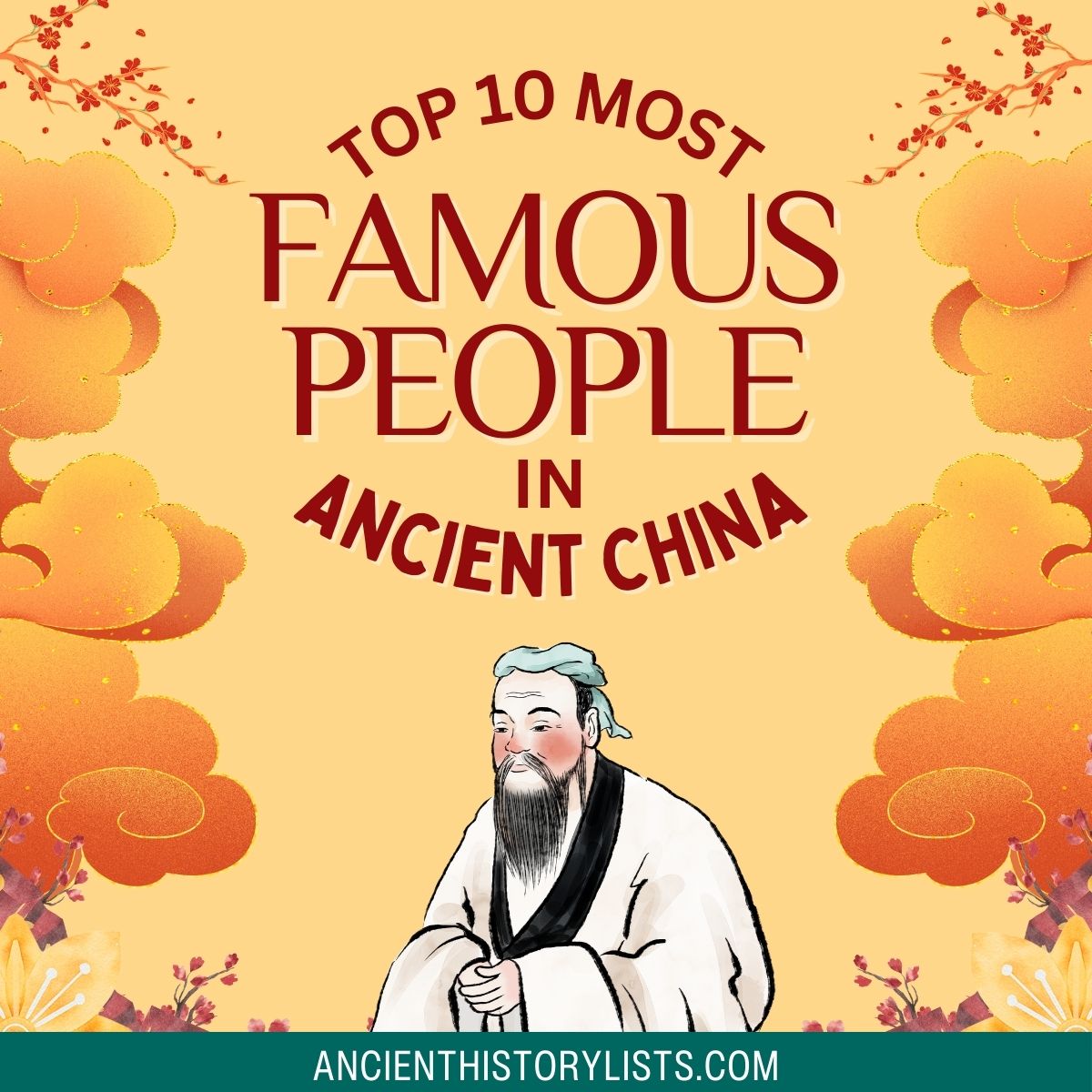
1. Gan De
Gan De was an astrologer and astronomer. He observed Jupiter and its four moons long before Galileo saw it through his telescope. This was in 364 BC when there were no telescopes or technology to help him, leading us to the conclusion that he must have observed it with the naked eye.
While observing Jupiter, he noticed that there was a red star next to it. This was a very unusual discovery as Jupiter’s moons have always been hidden behind the planet, and their colors are usually very faint. Gan De recorded his observations in books based on astronomical astrology.
2. Zhang Heng
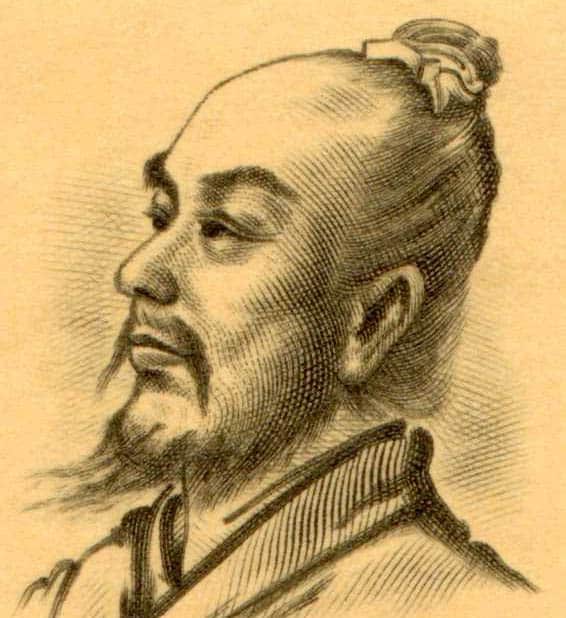
Zhang Heng lived during the Han dynasty and was an expert in subjects like astronomy, mathematics, hydraulics, and science. Zhang was not from a royal family but he was taught Confucianism and after educating himself in various fields he served as chief astronomer and later as a palace attendant at the imperial court. Although he had the opportunity to work at a higher level, he refused to accept the posts, claiming that he was not ambitious enough.
In ancient times, famous astrologers like Zhang used to write calendars for the kings. The calendar was meant to guide the emperor on the way he should rule, but they had little to do with the emperors’ ruling strategies and were based largely on what the astrologers wanted. Zhang’s refusal to draw up an unauthorized Chinese calendar for the government made him unusually popular.
Zhang invented a water-powered armillary sphere that was used to calculate altitudes and longitudes. He also put forward theories about the moon and its relation to the sun. He studied the 3×3 magic square and found a number close to π. He stated that π was approximately the square root of 10 and equivalent to 3.162. He derived equations for the volumes of three-dimensional objects like spheres and circumscribing cubes. This level of mathematics was unheard of at the time.
He also contributed to the field of literature by writing many poems and stories, an interest which he developed while he was working at court as he had access to many books and great works of literature.
3. Zu Chongzhi
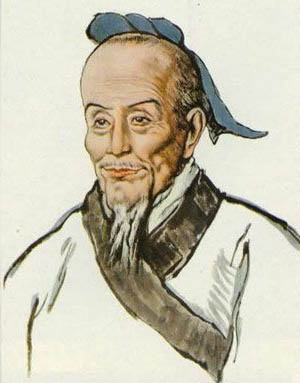
Zu Chongzhi was known for his precision in calculations, his understanding of mathematics, and astronomy. He came from a family of astronomers, and this is probably where his interest began as he was taught all his astronomical and mathematical skills by his grandfather. His family had served the king for many years, astronomers having an important role at court because it was thought that the king received his orders from heaven.
Zu was intelligent and was appreciated for his wit. He concluded that the rational number 22/7 was greater than π and he used his skill in mathematics to calculate astronomical possibilities.
He was the first to introduce the Daming calendar which laid out the activities the king had to achieve for that year. The calendar was very accurate and ran for a long period of time. He accurately calculated the number of days in a year and was able to precisely tell the time of the day as well.
4. Gongsun Long
Gongsun Long was a logician who wrote many paradoxical essays. These essays only consisted of about 300 characters each but had deep meaning and offered many useful lessons.
Very little is known about his achievements as many of his documents have been lost, and only six out of fourteen poems have been found. One of his famous poems put forth the idea that a white horse is different from his clan and is therefore not a normal horse.
His poems offered no conclusion to the paradoxes that he presented and were received well by many, but others felt disappointed by them. Gongsun Long has been hailed as the most sophisticated philosopher ever.
5. Mozi
Mozi was a Chinese philosopher, and his teachings focused on self-reflection and self-understanding. Although he practiced Confucianism, he was also opposed to it and believed that such learning would hamper the lifestyles of the people and would decrease their productivity of thinking.
He founded the Mohism school in opposition to Confucianism, his followers instead following traditional religious teachings. They believed that people should have good ethics and practice healthy relationships with each other, as Mozi was an admirer of the simple relationships that people had in the past.
6. Wang Chong
Wang Chong was a Chinese astronomer, meteorologist, and philosopher of the Han dynasty. He was a rationalist and didn’t believe in the philosophy that existed in China at that time.
Being brought up in a poor family did not stop him from reading and learning, his emphasis always being on explaining things scientifically without superstition. He put forward a materialistic explanation for the beginning of the universe and human existence which was very unusual for the time and has led to later philosophers reflecting on his articles and thoughts.
He was a government inspector and official but didn’t stay in these posts long because of his beliefs. Wang Chong was very popular as he offered a fresh, unconventional way of thinking.
7. Li Si
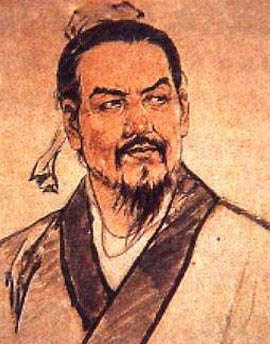
Li Si was a Chinese politician, writer, and calligrapher from the Qin dynasty, and was prime minister before plotting to overthrow the monarchy. For this, he was imprisoned and killed, a fate which had an impact on the next three generations of his family.
He strongly believed that people should follow their hearts and not succumb to the norms. He is thought to have had a great influence over the military, and was responsible for standardizing Chinese currency to make it fairer. He also tried to improve the Chinese language.
He was very popular in his lifetime and many people believed in his ideology and the way he challenged other writers’ superstitious beliefs. He even went as far as to suggest that their work be burnt or buried, which did spark some controversy. However, his findings and systematic approaches made a noteworthy contribution to China civilization.
8. Liu Xiang
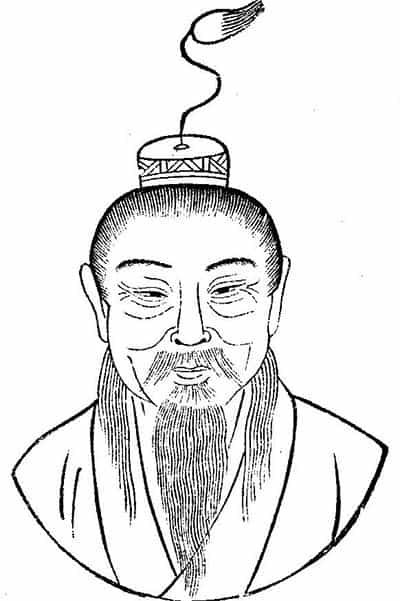
Liu Xiang was a politician, historian, writer, and a member of the Western Han dynasty. He was imprisoned on several occasions, once for stating that earthquakes were a natural event which went against the beliefs of the ruling emperor, and again for his part in a plot to curb the power of the emperor’s female relatives.
He made a huge contribution to the field of literature. Being well versed in the Chinese language, his poems and writings were very popular among the people.
9. Cao Zhi
Cao Zhi was a son of the ruler Cao Cao of the Three Kingdoms Period. He was selfish and self-centered and wanted to succeed his father but a power struggle with his brother ended in defeat and he was denied any political position.
He was known for his unique style of writing that went to the root of Chinese culture, but his work was very different and distinct from other Chinese poets. His poetry was of the romantic genre and despite only containing five characters each, the poems conveyed a great depth of meaning. His style of writing became more melancholic after the death of his father.
10. Tao Yuanming
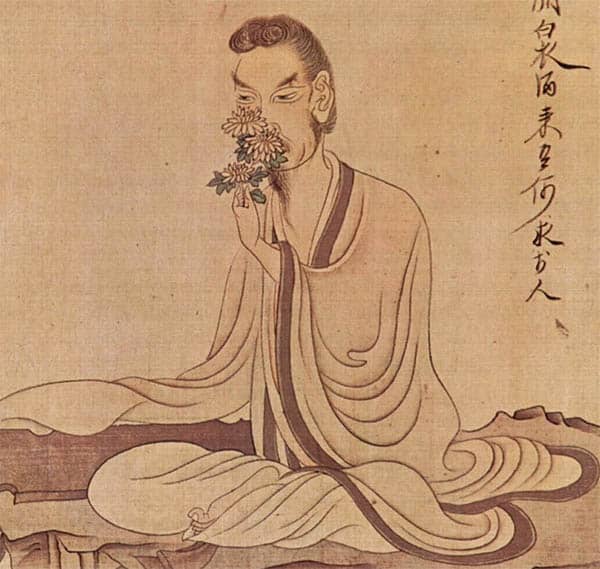
Tao Yuanming was an ancient Chinese poet. He lived in a small house in the countryside and spent his time drinking wine and writing. He described this rural life in his poems, and although his poems were recognized and loved by many, he was a man who sought solitude and didn’t interact much with other people.
His poems described the traditions of the people in the countryside so beautifully and idyllically that people would want to live there, seduced by his language and style of writing. His writing was deep and showed such a clear understanding of life that many people could not believe that he was a simple farmer. His writing was also much admired by contemporary poets at the time. Artists were inspired by his dedication to his work and created paintings and sculptures of him.
Conclusion
This list is by no means exhaustive and many others have contributed to China’s rich culture. However, the people who did make it on to this list were pioneers in the fields of philosophy, science, and the arts, tackling subjects way before many other civilizations did so. This propelled China to the forefront of scientific, artistic, and philosophical development and laid the foundation for its rich cultural history.
Here are again links to the remaining two, Sun Tzu and Confucius.